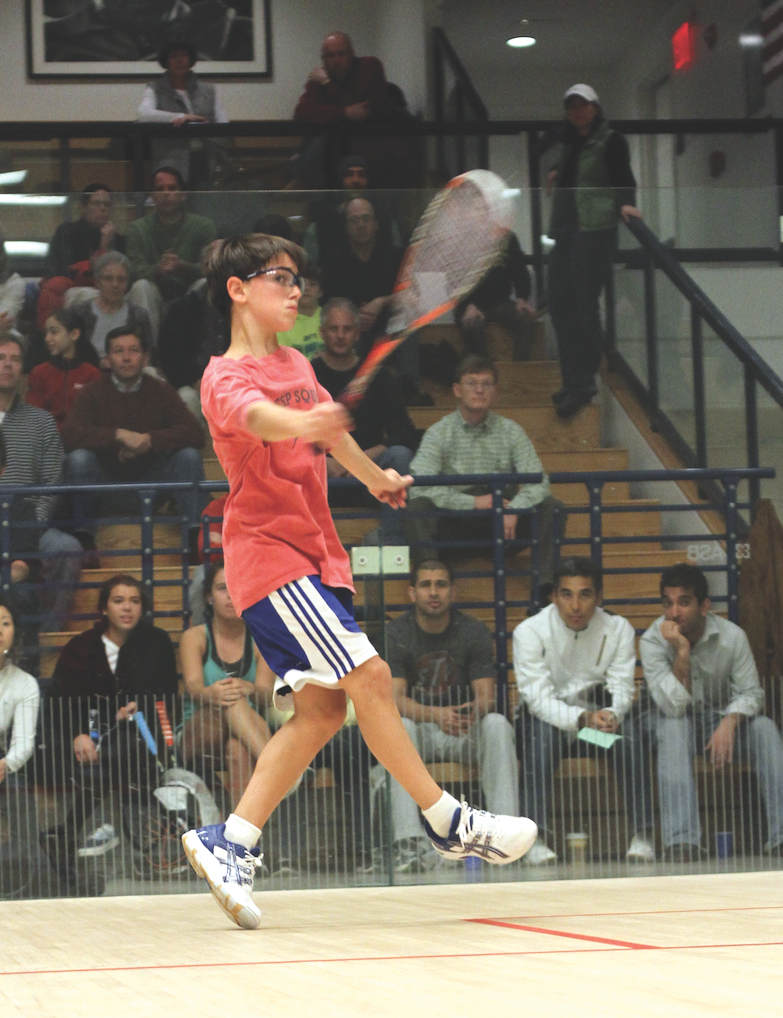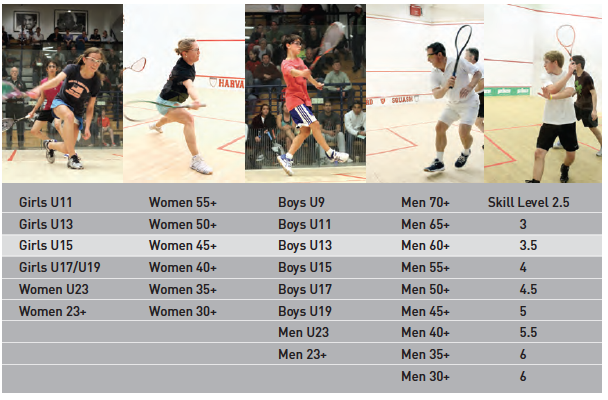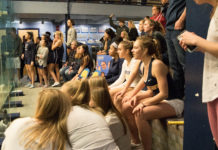By Richard Millman, Owner – Westchester Squash
Who you play can be a key factor if you want to develop both a broad and deep understanding of the game.
In the game of Squash we have some broad categories in the competitive world. Of course, one can subdivide groups ad infinitum but for the purposes of this article here are some groupings to consider:
Now clearly this is not an absolute and we will always find individuals who don’t fit this grid, but as a general guideline I recommend that you actively seek playing partners in all the categories who are listed on a parallel level and, in so far as is possible, frequently play with players who are from the category line both above and below your level.
Hence on the grid below: if you are an Under 19 boy—you should be finding opponents who are talented Men 45+, Women’s 30+, Women’s 23 +, 5.0 players of any age or gender, as well as fellow Under 19 boys. In addition you should regularly seek competition against Men’s Under 23 players, any 5.5 players, Men’s 40+ players to step up, and practice with Women’s Under 23 players, Women’s 35+ players, Boys U17 players, Men’s 50+ players and any 4.5 players.
While you may think that playing players below your level may not be helpful, if you do your research properly you will find that some of these players are faster than you, have better touch, are wiley old veterans with strategies that you haven’t seen before or even have shots you have never seen.
If instead of simply playing a match you play conditioned games, you may discover that your older or younger opponent has something worth practicing against and learning about.
If you only play players from your group you will not benefit from the experience of playing the full spectrum of players and may fall into the trap of learning to play Junior squash, or Men’s 50+ squash, or Women’s college squash, etc., instead of…Squash.
Speaking as a 52 year old, I find it very useful to play against a 17 year old, to remind me of what a challenge raw speed is. Conversely there are very few 17 year olds who can beat me at the ‘Channel game’ ( within the width of the service box). Therefore I can envision a practice session where we would play some games that would emphasize both my strengths and my 17 year old opponent’s strengths—and we would both be the better for the competition.
To summarize, if you wish to be the best player you can be, step outside the constituency you are familiar with and expose yourself to different players as often as you can.
In this way you will become a more complete player and not limit yourself to the style of play of just one group.
Juniors: Play adult skill level competitions.
College players: Play adults and juniors and actively seek opportunities to play PSA and WISPA throughout the year.
Adult Skill levell players: Play Juniors, College and Masters players whenever you have the opportunity.
Masters Players: Don’t just play other masters—play Skill level competition, and expose yourself to the speed of youngsters. It will sharpen you up!
Coaches: Get your teams and players mixing with all constituencies—don’t just have them play against players and teams of their own kind.
Everyone: Find people that have areas of their games where they are better than you, and design practices and games that expose you to those challenging areas.
As the old saying goes: It takes a village. And that means the whole village getting together. So please, seek out your fellow villagers: Young and Old, Male and Female,Skilled and Less skilled, Quicker and Slower, Sly and Naive, and let’s work together to build our Squash Village.






